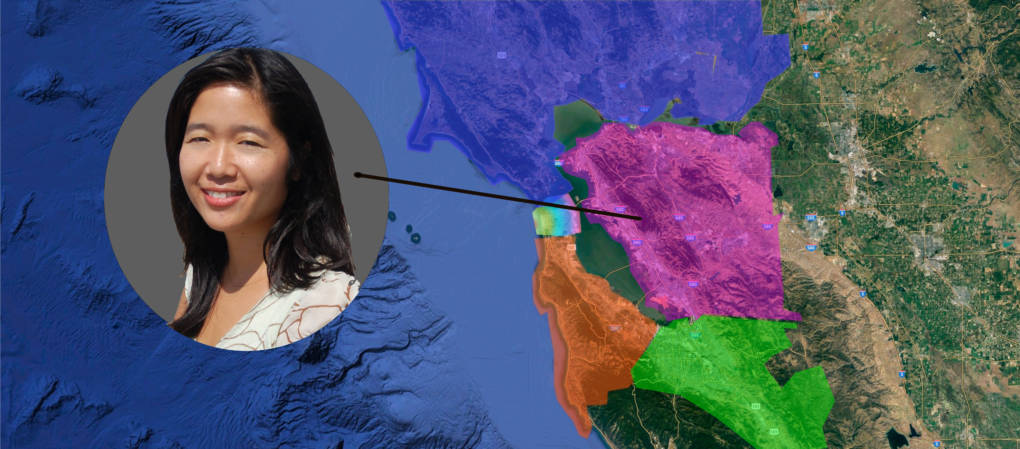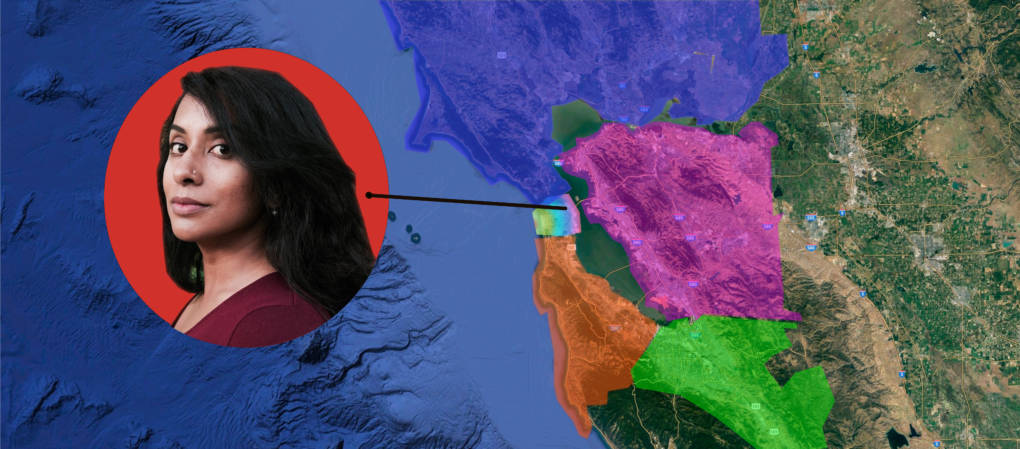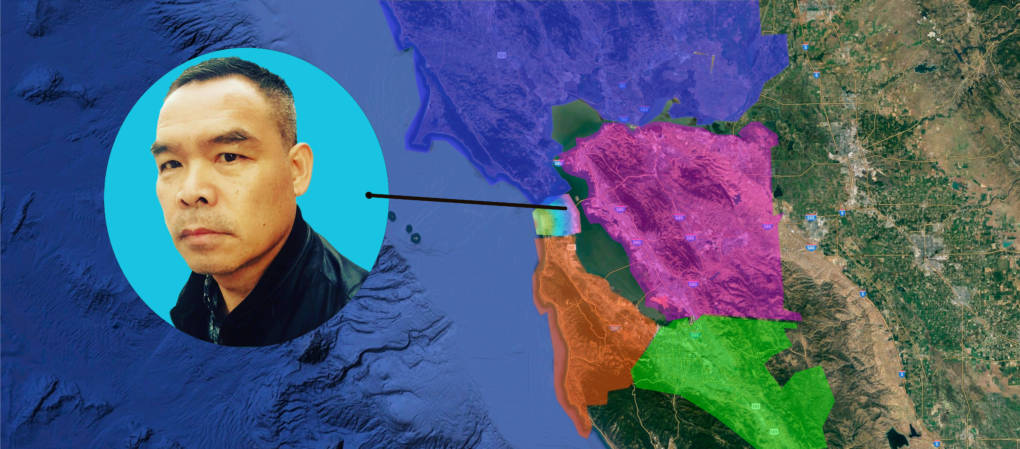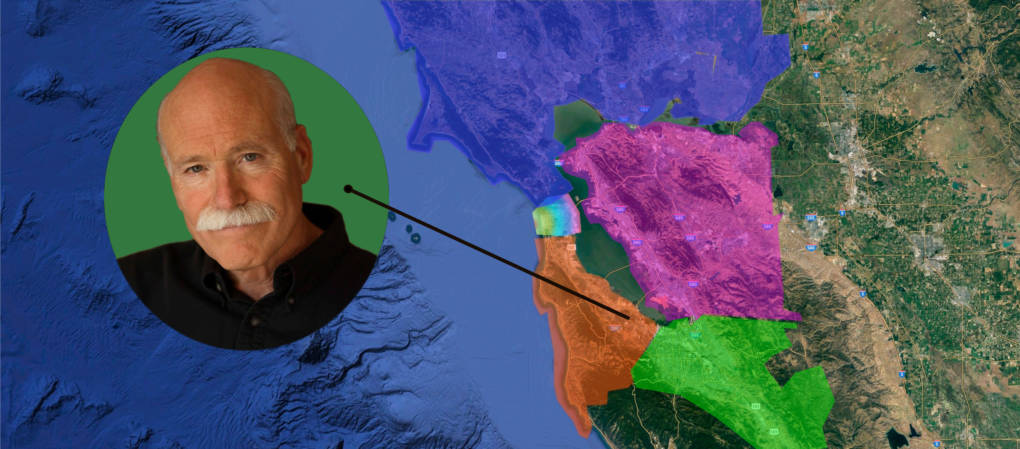I hope to be out on parole in 2018, provided I finish the book I’m working on, and don’t go crazy first.
Tobias Wolff is the author of ‘A Boy’s Life,’ and more recently ‘The Barracks Thief.’

Vanessa Hua, East Bay
Now that the days are getting shorter, my six-year-old twins are rising before dawn, but still we scramble to get out the door to school. After drop off, I settle down at my desk, where I look over my task list—I’m big on lists!—which keep me on track about what I need to revise in my novel, what I need to do for an upcoming column or freelance piece, and other correspondence I need to return. I listen to ambient electronic music: Tycho, Ulrich Schnauss, Bonobo, Boards of Canada, Air. Lyrics can be distracting, but sometimes I get into a nostalgic mood and listen to favorites from college, They Might Be Giants, Indigo Girls, or Erasure. Towards the end of the day, I go for a run or a swim—exercise is key to my creative practice. It’s when I’m away from my computer that solutions to narrative dilemmas bubble up from my unconscious. It’s been said that sitting is the new smoking, in terms of the harm it causes, and we need to keep our strength! After I get back, I start getting dinner ready—something I can pop into the oven and don’t have to tend to—then work for another hour and a half or so before the babysitter leaves. I write a to-do list at the end of the day, so that I’m ready to go the next morning. After family time and putting the twins to bed, I read research related to my novel, for pleasure, or catch up on the news before light’s out.
Vanessa Hua is the author of ‘Deceit and Other Possibilities.’ Catch her at Litquake for You Can’t Write That: Writing from Privilege on Monday, Oct. 9, at the San Francisco Center for the Book.

Tongo Eisen-Martin, San Francisco
I write in kitchens (a home’s true commons) or back bedrooms (for inner-city hermitage purposes). I start small. Sometimes three or four words are already there for me to begin excavating around. Sometimes I use immediate sights within a room or sounds from outside to fish lines of representation or corresponding phenomena out of my mind. I stay pretty close to the immediate and even after lines throw me off of cliffs down into a past, future or parallel, I try to land back in the room. Energies, sensations, joys, and aggravations are all starting points. Out and back. Sometimes I will have music playing if my mind won’t let energy in. Music is a good jump-start. The trade off is that music also dominates the tones, colors, even topics of a given landscape of a poem; zaps some of my lucidity. I like to leave my immediate reality just where it is when writing.
Tongo Eisen-Martin is the author of ‘Heaven is All Goodbyes.’ He reads at Grace Cathedral on Oct. 13 at 7:30pm as part of Litquake’s Exalted Verse: Poets at Grace Cathedral.

Shanthi Sekaran, San Francisco
When I was writing Lucky Boy, steeped in teaching and childcare, I gave myself one full writing day per week at the San Francisco Writers’ Grotto. My do-or-die day. Once I got into the swing of that book, I could write anywhere, anytime, and that’s what I did. Maybe that’s what mothers do. I’d steal a few minutes before bed, an hour during soccer practice. Now, starting my next novel, I’m searching again for some sort of process. All I know is that I like writing free-hand before I start typing. Writing by hand creates a physical—maybe metaphysical?—flow from mind to hand, passing, somewhere along the way, through avenues of longing and urgency. Wednesdays are my saving grace, when I meet two writer friends for coffee-and-no-gossip (the gossip happens at lunch). We work in a café in Oakland, where the tables are big and chunky. My only requirement: a big, meaty table. None of those coaster-sized French café tables for me. And tea. A big table and tea. And often chocolate. Table, tea, chocolate. One day, I fully intend to start the daily thing: 9:35 every morning, like a good and disciplined writer. I hope to start tomorrow. Or maybe the day after that.
Shanthi Sekaran is the author of ‘Lucky Boy.’ Hear her read for The Rumpus at Litcrawl on Oct. 14 at The Laundry in San Francisco at 6:30pm.

Andrew Lam, San Francisco
My daily rituals have been odd for many reasons: Until two weeks ago, I worked three days a week as an editor at New America Media, and those three days more or less were shot. They afforded me little time to work on my own writing. Instead I worked on others’ writing and posting stories for that website. The remaining days I ended up doing freelance work or working on writing that was close to my heart. Preferably, I get up early in the morning when dreams and memories and reality share a tenuous terrain. It’s when writing is most fluid and uninhibited. If I get some writing done then throughout the day I think about what I managed to jot down and, even when walking or out and about, I would use my cell phone to record new ideas and thoughts. Then again the next morning…
Andrew Lam is the author of ‘East Eats West: Writing in Two Hemispheres.’ Catch him on Wednesday, Oct. 11 at 7pm in conversation at the Swedish American Hall for Litquake’s Some Stories Deserve to be True: International Nonfiction.








